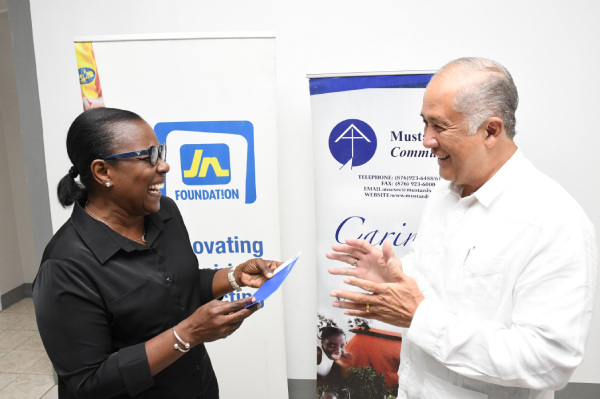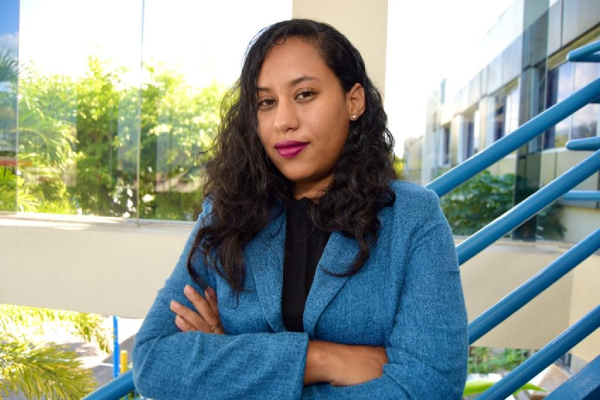JN Foundation and IBIS Bring Joy to Mustard Seed Communities
The face of the executive director of Mustard Seed Communities, Darcy Tulloch-Williams, lit up with joy and appreciation as a team from the JN Foundation recently arrived at its Mahoe Drive location in Kingston, bearing gifts.
The Foundation and the Curacao based IBIS Management Associates donated close to half a million dollars to the organisation to support its efforts with caring for the nation’s most vulnerable.
For Mrs Tulloch-Williams, occasions like these conjure up an overwhelming feeling of gratitude, as she pointed out that the needs of the organisation are great.
“This donation will be going into the coffers in terms of what we need to do. We are taking care of the most vulnerable of the society. Whatever you give will be used well and to the benefit of our residents here,” she said.
As he made the presentation, Parris Lyew-Ayew, Snr, Chairman of the JN Foundation, highlighted the importance of organisations, such as the Mustard Seed Communities, in supporting those most in need of care – a duty they carry out often without adequate resources. Therefore, he said, it is paramount that others, where and when they can, should assist institutions such as Mustard Seed to maintain their services to those who are sometimes forgotten by the society.
“We know too well the value of partnership. So, we did not hesitate to partner with IBIS Management Associates, one of our business partners at The Jamaica National Group. As part of its corporate social responsibility, IBIS gives back to the community in their country and to other children’s organisations throughout the Caribbean through the Bank4Kids Charity Fund,” he explained.
The Bank4Kids Charity Fund donates annually to children’s organisations from contributions it receives from IBIS clients. In November 2022, IBIS invited the JN Foundation to nominate a charity in Jamaica for support. The JN Foundation’s nomination was accepted, and IBIS selected the Mustard Seed Communities to receive a cash donation.
The JN Foundation through its own initiative, during the Christmas holidays, also rallied JN Group employees to make donations and they received several items, such as diapers and feeding tubes, which were presented to Mustard Seed Communities. Along with the diapers, the employees also donated cash to the institution.
Established in 1978, Mustard Seed Communities is home to approximately 500 residents across 12 facilities located in Kingston, St Andrew, St. Ann, Montego Bay, Manchester, and St Catherine. Several are children and adults who are physically and mentally challenged or affected by HIV.
Mrs Williams says individuals and groups can donate to the organisation by contacting them at 876-923-6488 or email: info-jamaica@mustardseed.com.








